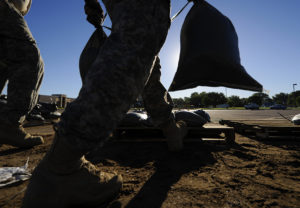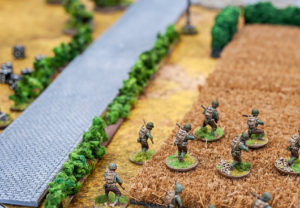A new study may open doors to more effective treatment for veterans as they move from active-duty to life after the military, changing the way they’re cared for both physically and psychologically.
The researchers at the Naval Postgraduate School in Monterey, California are suggesting that the suicide risk for vets is highest in the first year they’re home and out of the military. Their findings show that when compared to active-duty service members, former service members up to three months out are more than 2.5 times more likely to commit suicide. And, vets “who had left the service from three to 12 months earlier had almost triple the suicide odds of current members.”
The scientists involved in the study utilized data from almost 3.8 million current and former military members during a ten year span (2001 to 2011).
In it, they discovered that 4,492 veterans had taken their lives.
“Clinicians should [also] be aware that deployments may increase suicide risk independently of underlying mental disorders, and so asking patients about deployment history is advisable,” lead study author Yu-Chu Shen told FOX News via email.
More from the FOX report:
… in the first quarter following deployment, service members had a 50 percent higher risk of suicide than their peers who didn’t experience deployment.
The study didn’t examine why the suicide risk was lower during deployment than afterwards. But it’s possible service members benefited from the positive psychological impact of belonging to a group with a shared mission during deployment, Shen said, then had more time to contemplate any negative feelings about their experiences when they were no longer on the mission.
… Six years after leaving the military, veterans had a 63 percent higher risk of suicide than those still in the service, the study found.
One limitation of the study is that researchers lacked data on mental health disorders diagnosed after separation from the military, the authors note. They also lacked data on civilian experiences like divorce, unemployment, financial hardship or housing insecurity that could all influence mental health and the risk of suicide, the researchers point out.
The study also doesn’t account for the frequency or intensity of combat experiences, noted Dr. Charles Hoge, a senior scientist at the Walter Reed Army Institute of Research who wrote an accompanying editorial.
Both doctors and researchers hope to lower the biggest barrier to veterans receiving the care they need when they get home, and that’s the stigma surrounding asking for help in the first place. They advise for friends and family members to be vigilant and recognize the following behaviors that could be precursors to something far worse: withdrawal from loved ones, noticeable changes in demeanor and mood, talking about death and/or suicide itself, giving their stuff away and substance use.




































